Why there's more urgency for NFL teams to acquire a great QB
Tom Brady to the Buccaneers. Matthew Stafford to the Rams. Jared Goff to the Lions. Carson Wentz to the Colts. Sam Darnold to the Panthers. Russell Wilson to the Broncos. Wentz to the Commanders. Deshaun Watson to the Browns. Matt Ryan to the Colts. Baker Mayfield and Jimmy Garoppolo to who knows where.
And let's not get started on all the ways the Rams, Eagles, Bears, Chiefs, Texans, Bills, Ravens, and 49ers all moved up in the draft in the last six years to select the quarterback they thought would be The Guy. Heck, the Bears have done it twice.
Quarterback has long been football's most important position, and because truly great ones are in such short supply, NFL teams have always plotted ways to acquire one. But the aggressiveness of that pursuit has whipped into overdrive in recent years, with more franchises willing to commit more resources to the chase, which in turn has led to more QB movement than ever.
"I think over time, at least since the passing generation came in, the quarterback position has become a big part of what you're doing," Chiefs coach Andy Reid said at last week's NFL annual meeting in Florida. "With teams, they're going to sit there and evaluate their draft, if they think they can get a guy in the draft, they'll do it. If not, they'll go try to find one that fits their scheme. I think it's basically that simple. But you need a good quarterback for this day and age that performs."
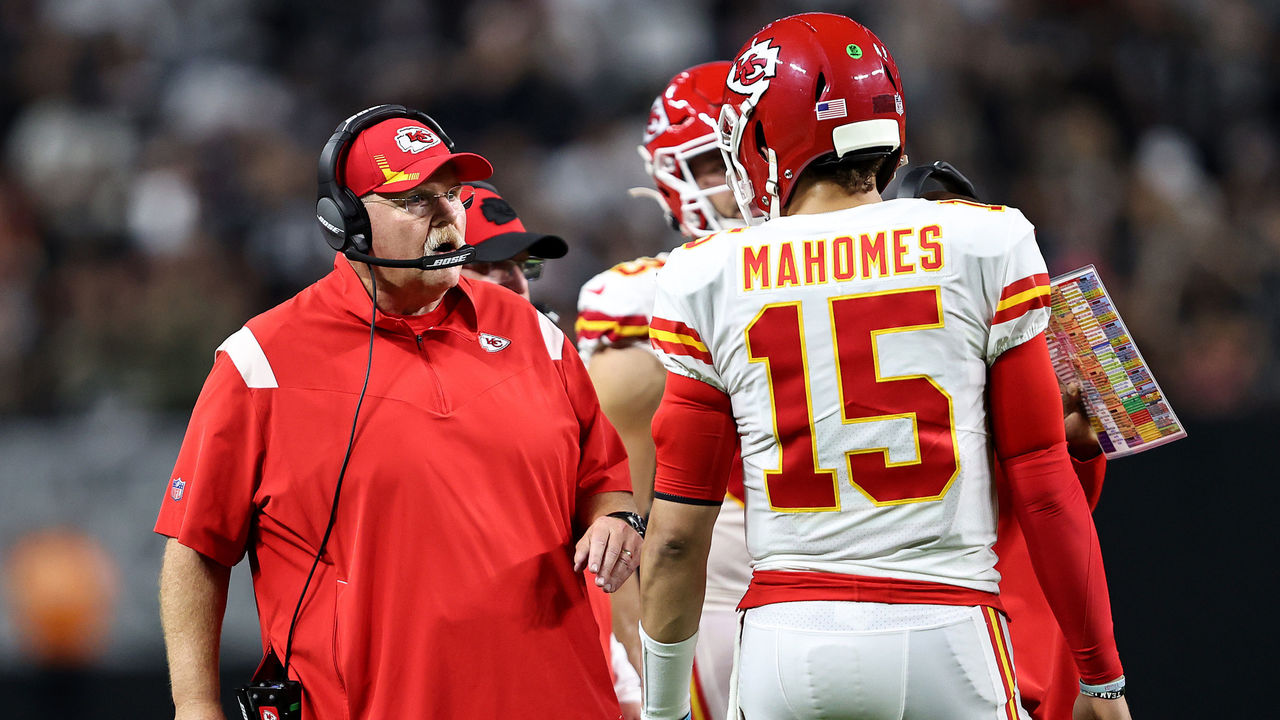
Reid's references to "the passing generation" and "this day and age" hint at part of what's driving this phenomenon. Throwing the ball is more important than ever thanks to rule changes designed to protect both quarterbacks and pass-catchers, the league's long-overdue embrace of spread-passing concepts that are so influential at the high school and college levels, and the growth of an analytics movement that has sussed out the efficiencies of the passing game.
Additionally, after a barren stretch of draft busts, a bumper crop of recent picks has raised the bar for everyone else.
"I think all you have to do is watch last year’s playoffs and season," Rams chief operating officer Kevin Demoff told theScore.
Parity was indeed more pronounced in 2021 when a record 12 teams were still within a game of the final playoff spot in either conference after Week 14; at that point, no AFC team had 10 wins. Then came the playoffs, when six of the seven games from the divisional round onward were decided by a field goal. The lone exception? The Chiefs' bughouse gallop against the Bills that basically broke the sport.
The margin for error was so slim throughout the postseason and quarterback play proved to be a decisive factor in almost every game:
- Josh Allen and the Bills scored a touchdown on every possession to vaporize Bill Belichick and Patriots.
- The legendary Patrick Mahomes-Allen duel that will be remembered forever because of the 31 points scored in the final two minutes and overtime.
- Joe Burrow beat the Titans in the final 20 seconds by rifling a pass to Ja'Marr Chase, then brought the Bengals back from a 21-3 deficit to stun the Chiefs in the AFC championship.
- Stafford had two completions to Cooper Kupp that covered 64 yards to set up the game-winning field goal after Brady brought the Bucs back from down 27-3 in the division round. Then Stafford overcame a 10-point fourth-quarter deficit to defeat the Niners in the NFC title game. And then came his 15-play, 79-yard drive to win the Super Bowl.
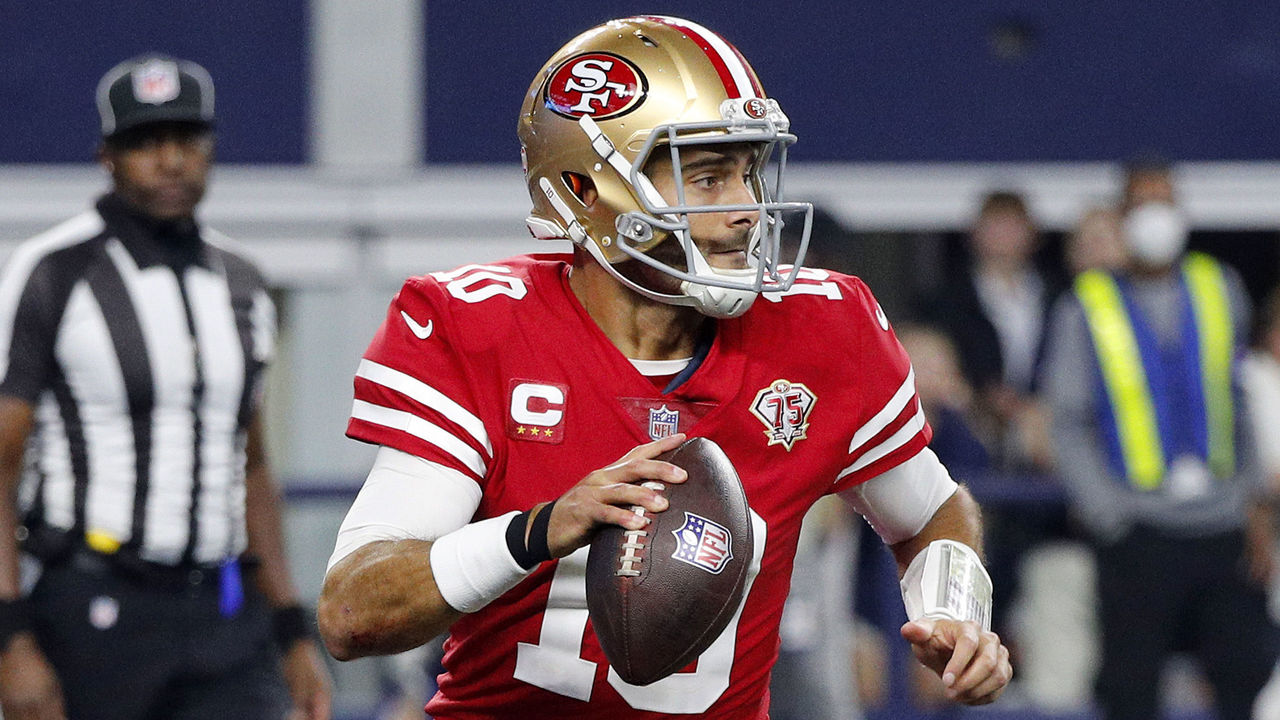
An early salvo in the current race to secure a high-end QB came in 2017 when the Niners traded for Garoppolo and gave him a market-level contract the following offseason. But his inability to part the seas and move mountains is the biggest reason San Francisco went all-in on drafting Trey Lance to eventually replace him. The takeaway from all this is pretty obvious.
"If you don't have a quarterback who's capable of winning games for you on your own," Demoff added, "you're probably struggling."
It wasn't just last season, either. Quality quarterback play is more integral to team success than it was five, 10, or even 15 years ago. Using data from Ben Baldwin's website, ESPN, and Football Outsiders, theScore analyzed a handful of metrics - expected points added per play (EPA/play), a composite of EPA plus completion percentage over expectation (EPA + CPOE), Total QBR, defense-adjusted yards above replacement (DYAR), QB defense-adjusted value over average (DVOA), and offensive DVOA - to find how often quarterbacks for teams that reached the conference championship games ranked as elite across five-year intervals.
From 2007 to 2011, QBs who reached the league's final four finished the regular season ranked in the top 10 of one or more of the six statistical categories listed above just 50% of the time. Top-five rankings came in at a 34.2% clip.
But from 2012 to 2016, QBs to reach title games ranked in the top 10 of those metrics at a rate of 77.5%, with top-five finishes coming in at 45.9%.
And in the last five years - from 2017 to 2021 - QBs for teams to play for a trip to the Super Bowl were top 10 in EPA/play, EPA + CPOE, Total QBR, DYAR, QB DVOA, and offensive DVOA 84.2% of the time, with top-five finishes adding up to 60.8%.
Coaches like Dan Campbell of the Lions and Pete Carroll of the Seahawks might favor an old-school approach of leaning on defense, field position, special teams, and running the ball to win. But as the late Marty Schottenheimer discovered time and again throughout his long, outstanding career, it's difficult to win a championship without a great QB. And today's NFL makes that even harder to pull off.
"I just think you can see the value when you have a special quarterback, where it can take your team," Chargers head coach Brandon Staley said at last week's meetings. "And I think that when you can make some moves to acquire one - whether it’s through the draft or trade (or) free agency - it gives your team a lot better chance to be successful in the long term."
The draft has long been the surest method for securing a quality QB; it just hasn't always been easy to do. Between 2006 and 2015, a total of 26 quarterbacks were drafted in the first round. Only eight secured second contracts with the teams that selected them.
Of those eight, Joe Flacco won a Super Bowl despite never once finishing in the top 10 in any of the metrics analyzed above, and he led the Ravens to the playoffs only once in the six seasons that followed. After signing his second deal, Mark Sanchez lasted only two more seasons with the Jets. The Dolphins wound up trading Ryan Tannehill, who eventually found his stride with the Titans after Marcus Mariota was benched. Andrew Luck's career had promise, but he took a beating and retired at age 29. Blake Bortles was Blake Bortles. The other three QBs in that group were Ryan, Stafford, and Cam Newton, who've all had distinguished careers.
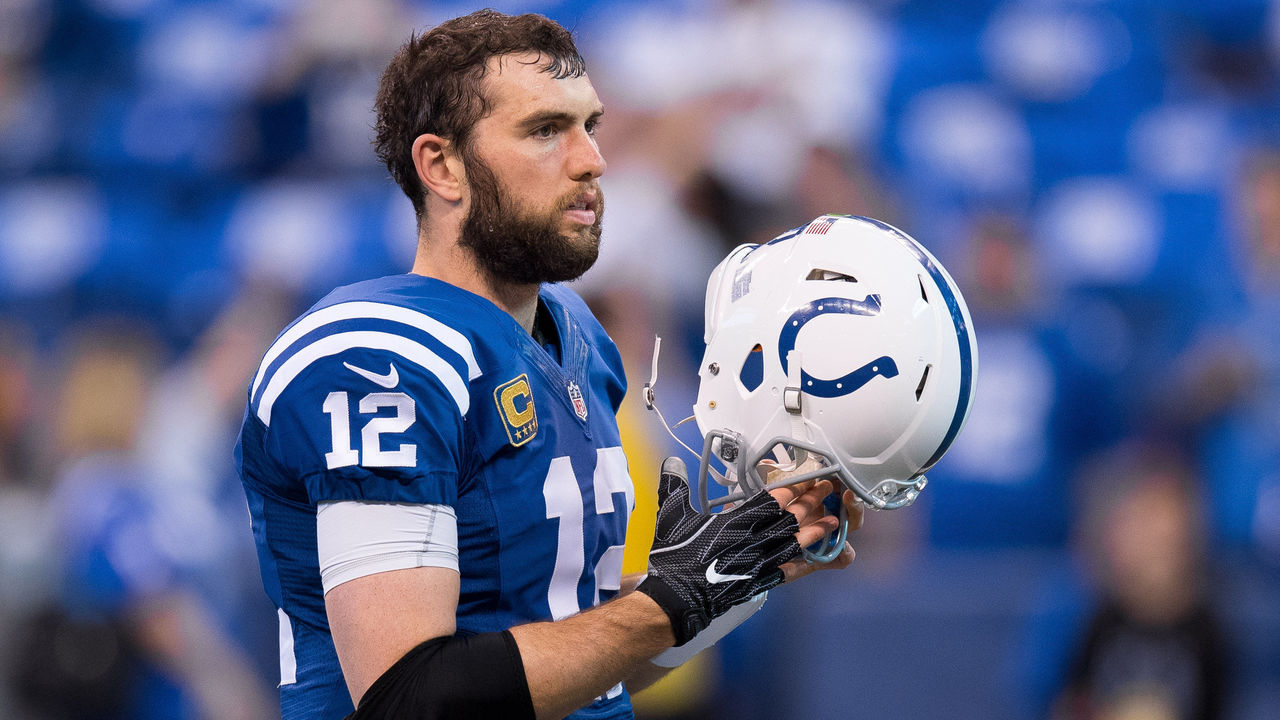
The last five drafts, meanwhile, have produced Mahomes, Watson, Allen, Lamar Jackson, Kyler Murray, Burrow, Justin Herbert, and the still-burgeoning potential of the five QBs selected in the 2021 first round. Plus, great QBs rarely hit free agency, but Brady - the greatest of all time - arranged for his contract with the Patriots to expire at the end of the 2019 season. He quickly signed with the Bucs and promptly won another Super Bowl. It became imperative for everyone else to keep up.
“The bulk of what you do - the foundation of what you do - has to be to the skill set of the quarterback," Broncos head coach Nathaniel Hackett told theScore. "And so whatever you’re going to do, you want to make sure that he feels comfortable. And if he feels comfortable, then you can expand and start doing things that other guys want.”
The Rams and Eagles, who respectively traded up to select Goff and Wentz in 2016, were willing to bite the bullet by moving on from both QBs less than two years after signing them to pricey, long-term contracts. Stafford proved to be the QB head coach Sean McVay needed to win a championship.
Philadelphia rolled with 2020 second-round pick Jalen Hurts last year and will probably give Hurts the chance to prove himself in 2022. After this week's massive pick swap with the Saints, the Eagles now have two first-round picks in 2023 and two second-rounders in 2024 - assets that could come in handy if they're looking to move on from Hurts after 2022 by drafting his replacement.
There's nothing new about trades involving star quarterbacks. The 49ers shipped Joe Montana to the Chiefs in 1993, and the Jets picked up Brett Favre from the Packers in 2008. But Montana was about to turn 37 at the time and had basically missed two whole seasons because of an elbow injury while Steve Young proved himself; Favre was turning 39 with Aaron Rodgers waiting in the wings.
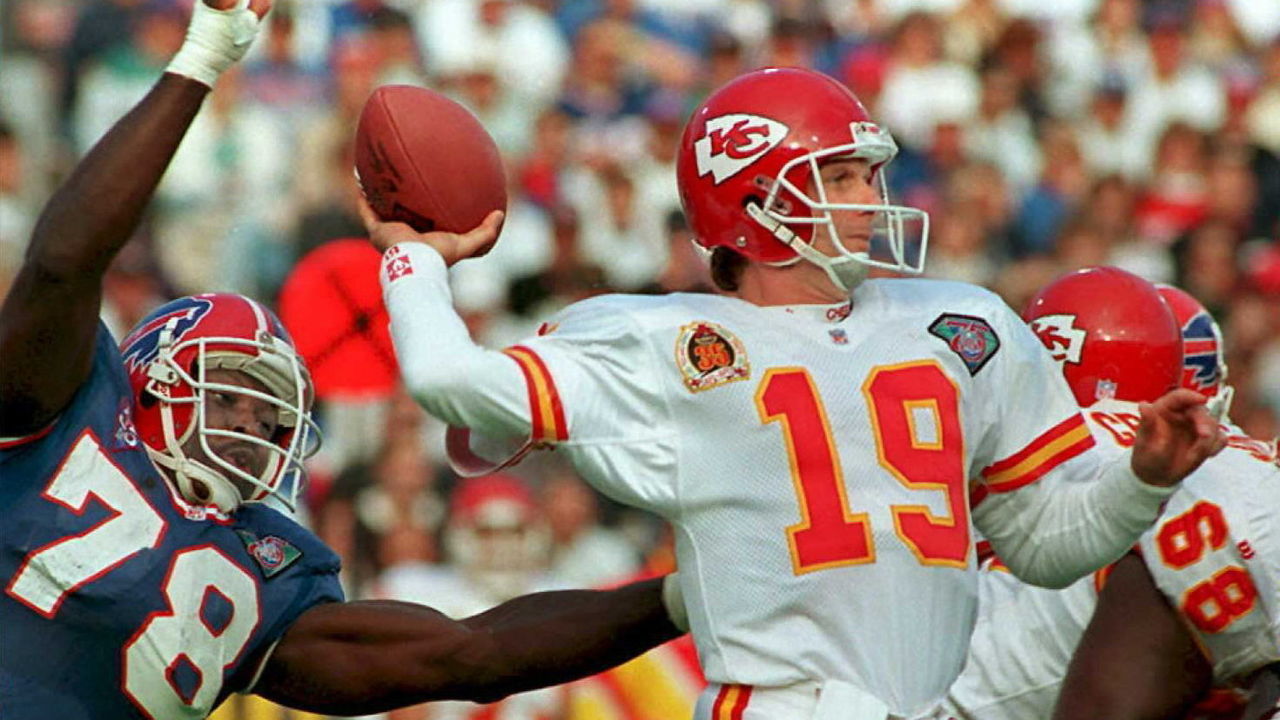
Still, quarterback trades that return first-round picks have remained rare. Sports Illustrated's Albert Breer noted there were only seven player trades involving a first-round pick (or more) in the first seven years after the implementation of the 2011 collective bargaining agreement. The next 17 months produced eight such deals, but none included quarterbacks.
Per Stathead, QBs were traded for a first-round pick (or more) nine times between 1994 and 2004, but it happened only four times from 2005 until the Wentz and Stafford trades last year. The Broncos acquired Wilson for two first-round picks (and then some), while the Browns nabbed Watson for three firsts (and then some) in the last month alone.
Demoff mentioned the megadeal the Rams made that allowed Washington to take Robert Griffin III in 2012, plus the original trades that positioned the Rams to select Goff and the Eagles to take Wentz. A drafted QB has a cost-controlled contract that's far below the top of the market. A veteran QB is obviously costlier but offers more certainty.
“The deals you're seeing now for veteran quarterbacks are reflective of what you've always seen in the draft," Demoff told theScore. "People were always willing to give up two firsts, three firsts for rookie quarterbacks. Part of that is you get the contract that goes with that."
What's changed, according to Demoff, is that teams are willing to give up a boatload of trade compensation while also taking on the substantial cash and cap consequences of a veteran contract.
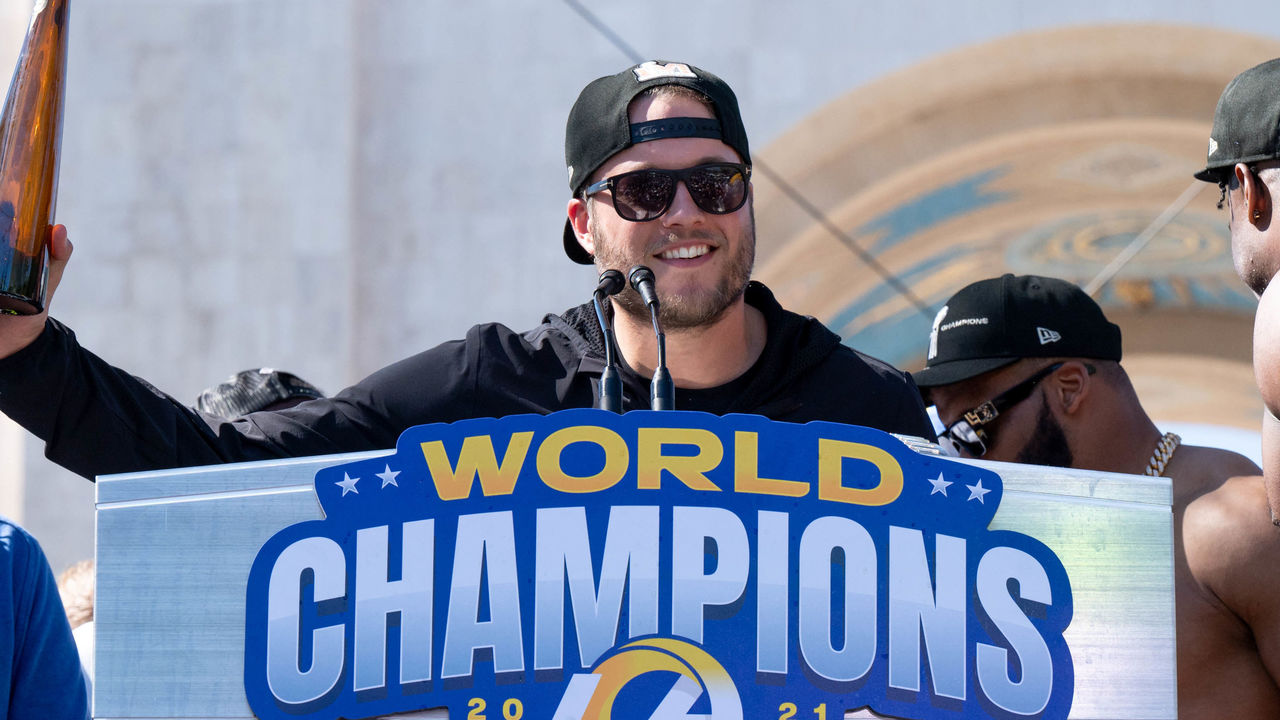
The Rams made it work last season, but it hasn't been as simple as "F them picks," as the memes might suggest. L.A. likes to deal high-end draft capital for proven veterans while also stockpiling mid- to late-round picks to build much-needed depth. The Rams also have a unique method for identifying the kind of players they want to select, as their brain trust openly shared with The Athletic's Jourdan Rodrigue before the Super Bowl.
It might be tough for teams to copy the Rams' model, but in today's game, going all out to get a quarterback certainly offers a tantalizing shortcut.
"I think that remains to be seen if that strategy's going to be effective," said Staley, who of course had the luxury of being hired by the Chargers the year after Herbert was drafted. "Just because you make a move for one now doesn't mean it's going to work out.
"I still think the best way to do it is to draft one and to truly make that guy your player that you grow with. But as you guys have seen, there's a lot of different ways to onboard a great quarterback."
Dom Cosentino is a senior features writer at theScore.